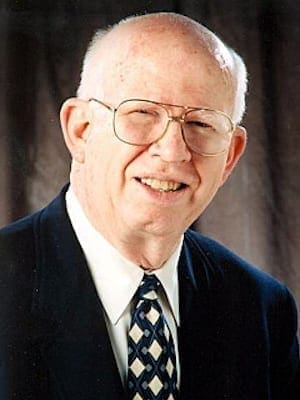“God Will Take Care of You” was a very popular hymn when I was growing up.
Serene Jones, president of Union Theological Seminary in the City of New York, makes it clear this is not the case in her new book, “Call It Grace: Finding Meaning in a Fractured World.”
God empowers us to take care of ourselves, she says, in this theological reflection that is as true as the author can make it at the time of its writing.
She is a product of Oklahoma and its broad sweeping plains, burdened by the racist history of the state and especially that of her family – though her father breaks that mold.
Her own struggles with racism play out in a teenage fit of disappointment and anger. She wrestles with her grandfather’s not-so-subtle sexual abuse.
Jones is also a product of the teachings of Calvin, Niebuhr, Kierkegaard, Bonhoeffer, Barth and Tillich and later of feminist theologians. She is steeped in the doctrines of the Christian Church (Disciples of Christ).
There is no doubt that she belongs at the helm of the Union Theological Seminary. They are blessed to have her and so are we.
Her story is so compelling that it is difficult to put the book down. We get to watch as she takes what she experienced in India and processes those experiences to weave her own spiritual formation. She learns quickly from other cultures and other faith traditions.
The one major flaw is that in the story of Freddy (a boyfriend of Jones during high school who dropped out of school), she substitutes what she wishes were the truth for the real truth.
She mistakes raging teenage hormones for true love and then enshrines that image in her brain. She attributes Freddy’s death to his condition of poverty.
In reality, Freddy had all the elements he needed to escape poverty: a motorcycle, intelligence, talent, work, money and the role model of Serene and her family. He made a conscious choice to remain stuck.
She says that it was Freddy’s death that sent her into the study of theology. It was more likely the influence of her father because her younger sister also became a minister.
Despite this shortcoming, her telling the story of Freddy is exquisite and sets the pattern for an unrelenting search for meaning.
Jones also reflects on her marriage, which seems like it never stood a chance of success.
Yet, her love for her daughter and what being a mother birthed in her is truly inspirational.
Her oneness of spirit with her daughter is a case study in mother-daughter relationships.
Her struggles with the bombing of the Murrah Federal Building in Oklahoma City and how she works through her hatred of Timothy McVeigh to come out of that struggle on the side of being opposed to the death penalty is a lesson in transformation for us all.
As much as Jones loves and respects her theologian father, she neither respects nor adores her mother. who was a bitter, harsh, mean person.
I suspect the mother was sicker for a much longer period of time than anyone suspected. She was brutal in the verbal abuse of her brilliant daughter and later she almost destroyed her adoring husband.
It is against this harsh reality that Jones’ theology is tested and reforms.
Jones comes to the conclusion that we are all held in God’s love. That the space between us and the breath that flows through us and unites us is God’s grace. We are all a part of God and that God is a part of us.
“It also allows us to see God not as another object, distinct from us, but as the air, the flow, the spirit, the life force that moves between us and through us,” she writes.
Her father’s mantra is referenced often, “We are all children of light and children of darkness. We are all children of the same God.”
The concluding lines of the book carry her message: “Love has become a trifling word, but it still, as a theological concept, has the power to redeem if we can grasp that it exists within and yet comes from beyond desire, language, need and want. That is the simple reason, really, why we call that love ‘grace’.”
My summary is found in her words, “Grace is older than sin.”
A member of First Baptist Church of Charleston, South Carolina, he was the author of “Our Father: Discovering Family.” Mitch’s writings can be found at MitchCarnell.com.


